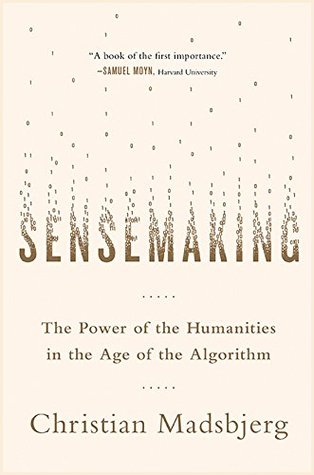More on this book
Community
Kindle Notes & Highlights
Read between
July 8 - July 20, 2017
despite the promise of independent thought in modern liberal democracies, our notions of what is appropriate and relevant come to us through social context.
Despite what people in power assume, leaders and key strategic thinkers are almost always surrounded by layers and layers of abstraction.
Everything is a disruption: a clean break from the past leaning far forward into the future.
“Big data does not solve the problem that has obsessed statisticians and scientists for centuries: the problem of insight, of inferring what is going on, and figuring out how we might intervene to change a system for the better.”
These companies have embraced a teleology of data, where more data will yield progressively more: better results for consumers, a more accurate understanding of consumers’ needs and wants, and better outcomes for society at large. But is bigger really better?
Facts, in other words, always live in a context, and hacking them into discrete data points renders them meaningless and incomplete.
In a Silicon Valley state of mind, we care less about actively seeking out the truth than we do about engaging in discourse and experiences that make us feel affirmed and acknowledged.
But the way they work—that on the basis of which—is driven by engineering and technological innovations.
But Ford had limited understanding of the world of these consumers: the way they constructed their reality. Sensemaking provided the missing connective tissue.
In “chains of meaning,” they sought out rare coffee beans in order to feel like open-minded and curious people in order to feel like the best versions of themselves in order to feel fully alive.
Ford is prioritizing an understanding of real people and their experiences of being in and using a vehicle. From there, innovation and engineering follow.
mastery is characterized by an intuitive flow—an involvement in a world—rather than a self-aware, computational process.
We say, “I am in an anxious mood,” not “An anxious mood is in me.” This is an important distinction, because moods are inherently social.
we are not converging toward exactitude, but we’re improving our databases and our ways of reasoning about them.
These skills were characterized by an engagement with reality founded on experience, empathic understanding of others, and sensitivity to the situation. It’s the extraordinary ability to synthesize “a vast amalgam of constantly changing, multicolored, evanescent, perpetually overlapping data, too many, too swift, too intermingled to be caught and pinned down and labeled like so many individual butterflies.”


